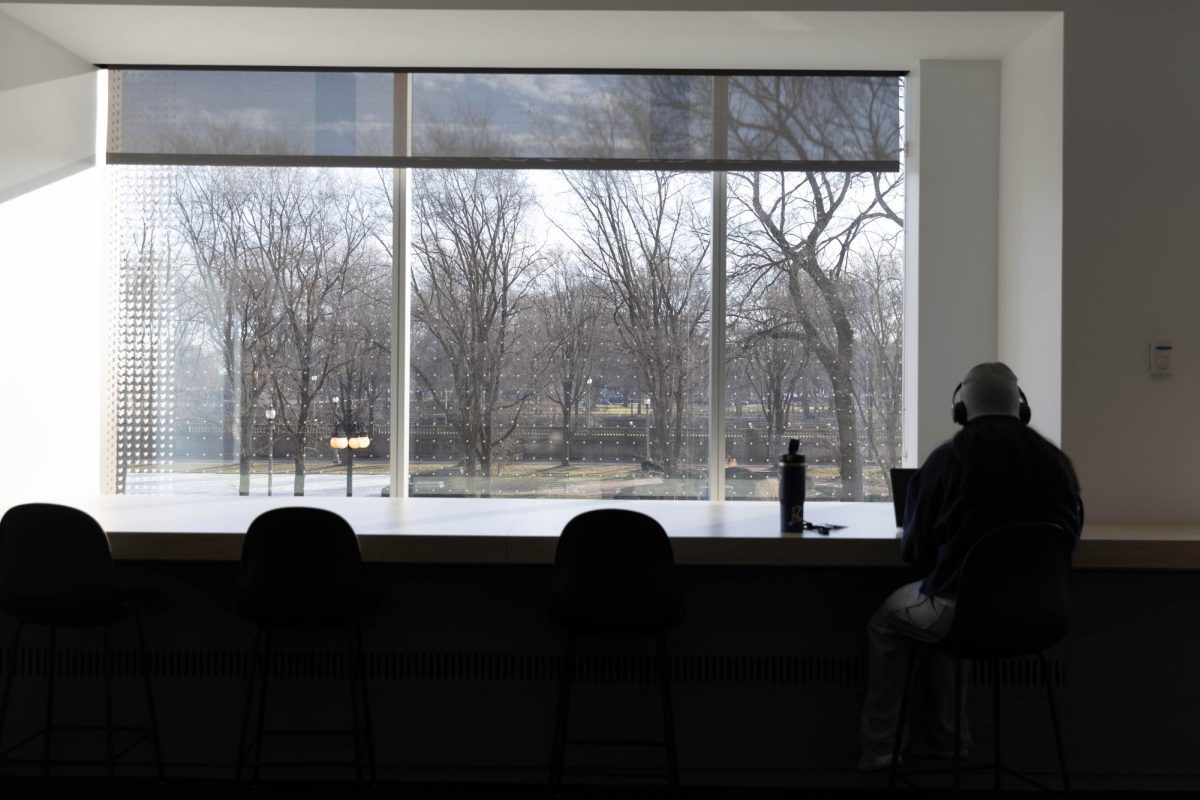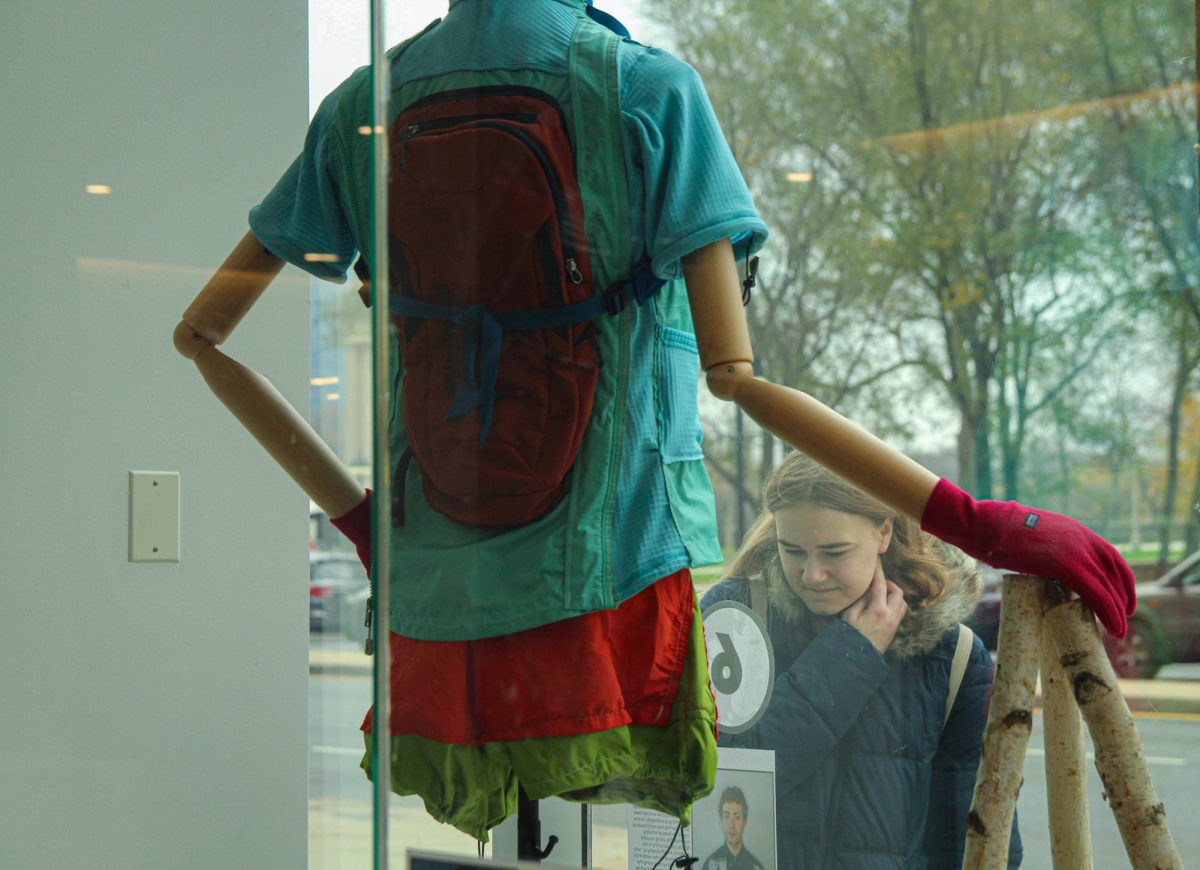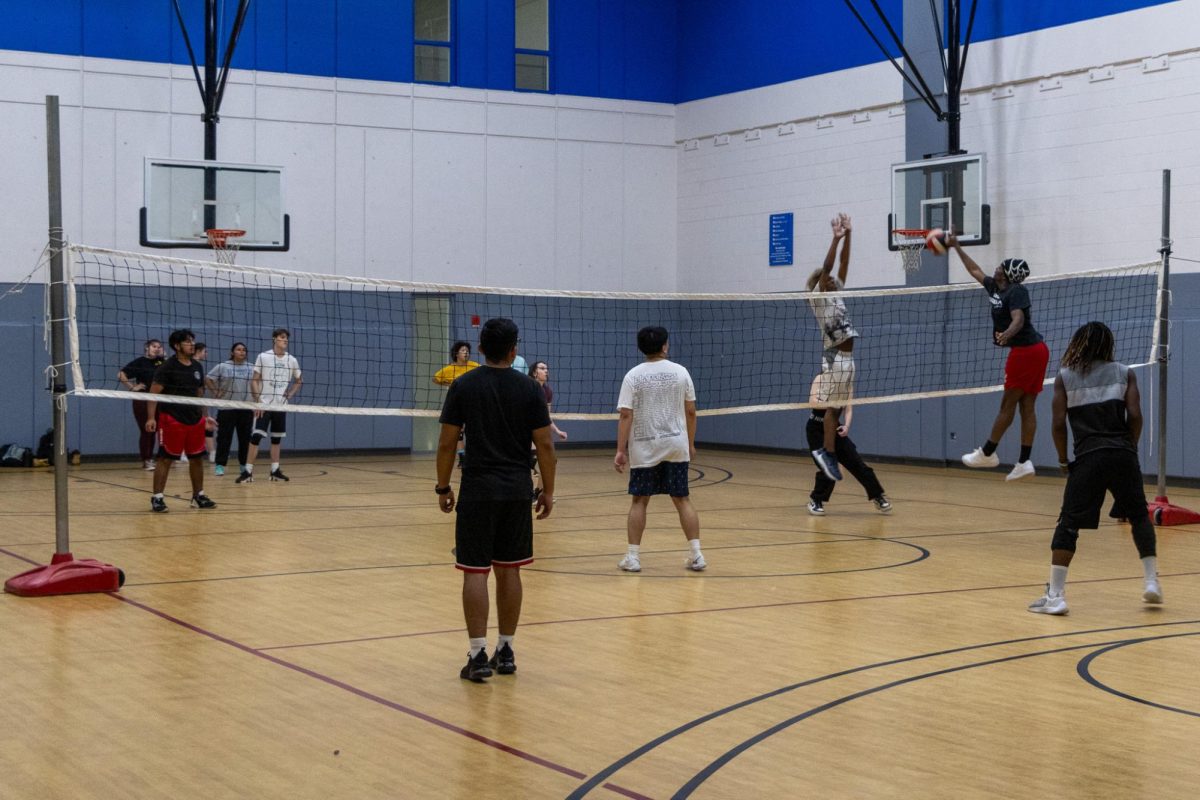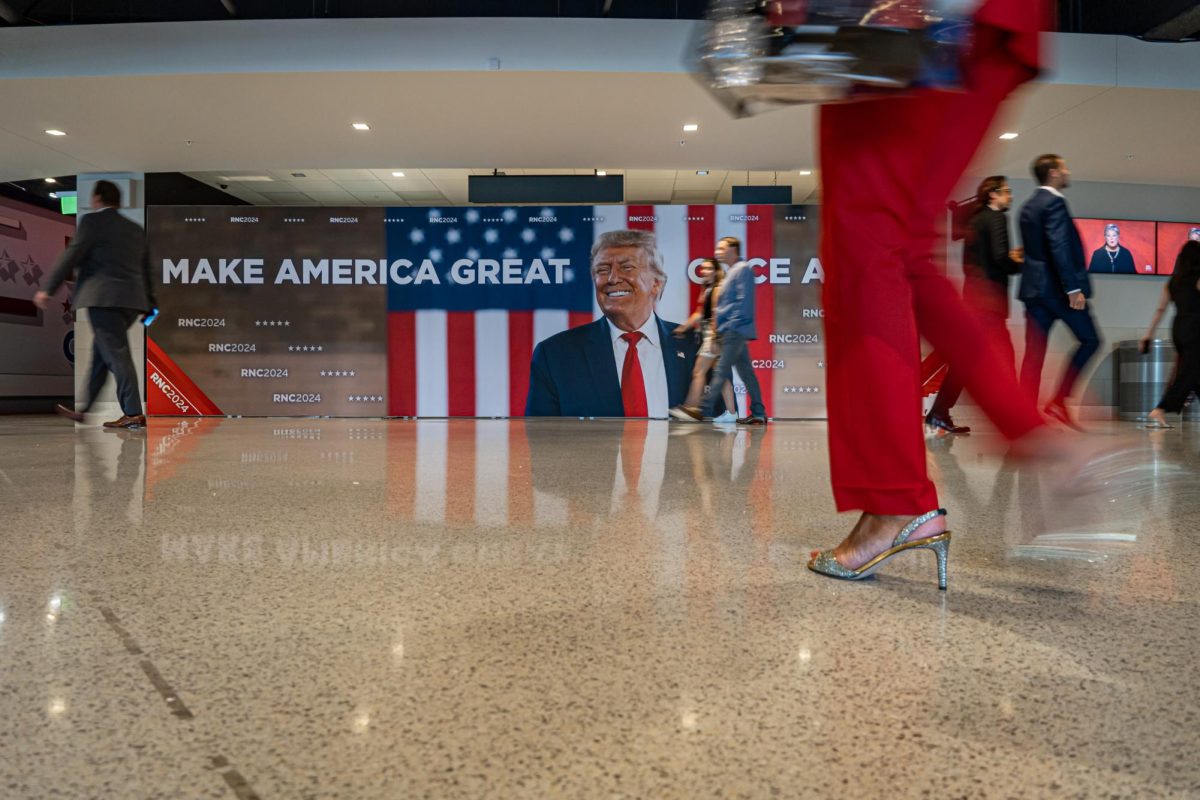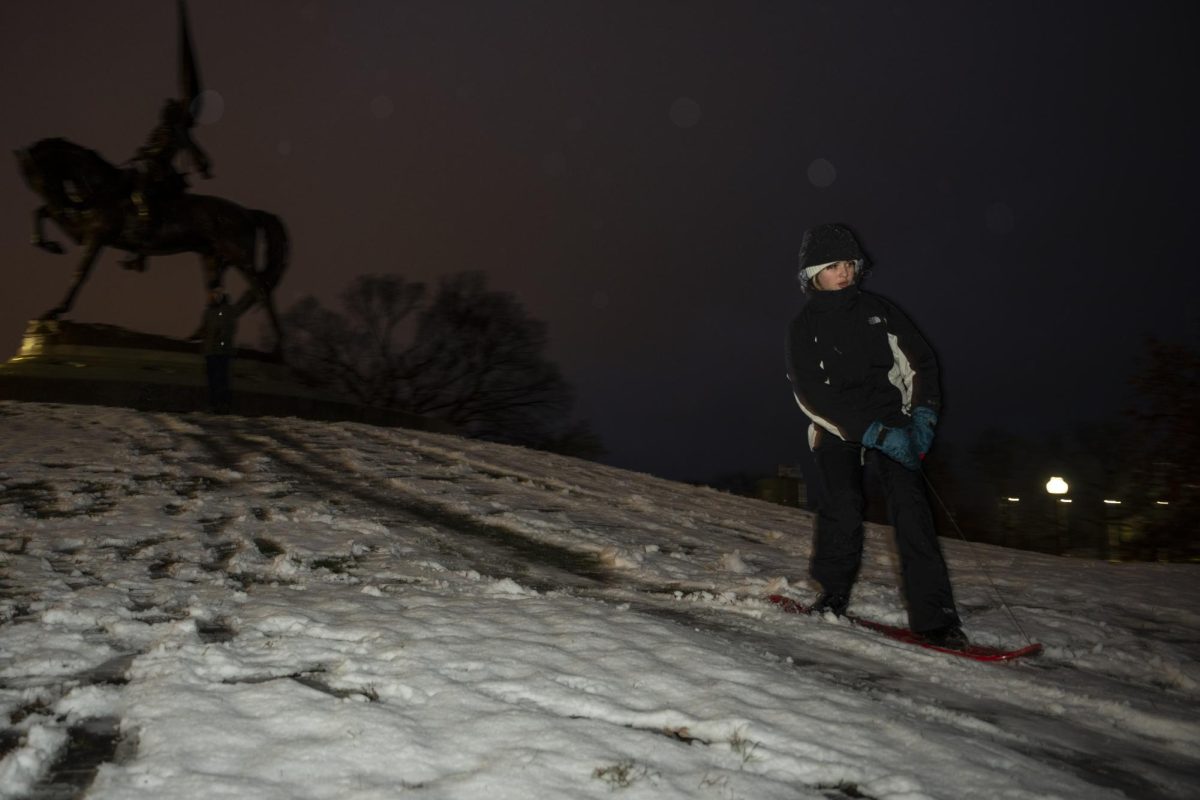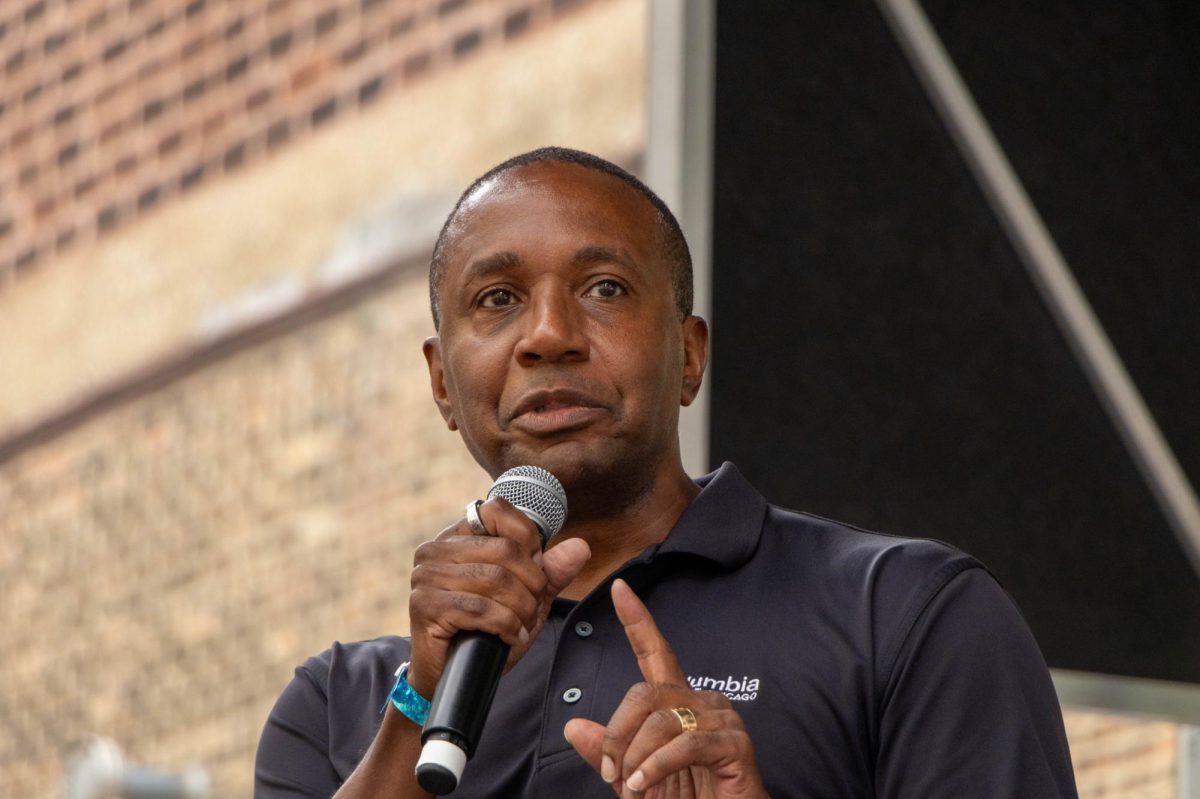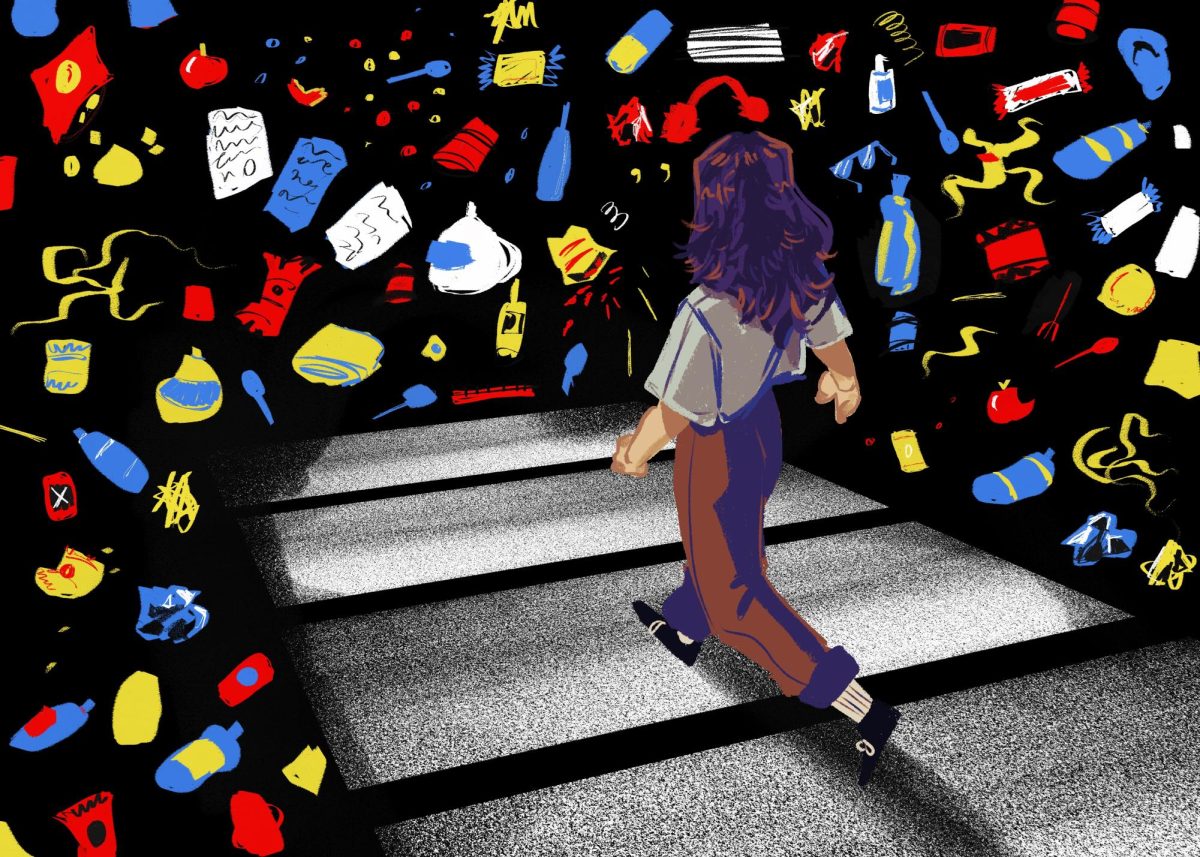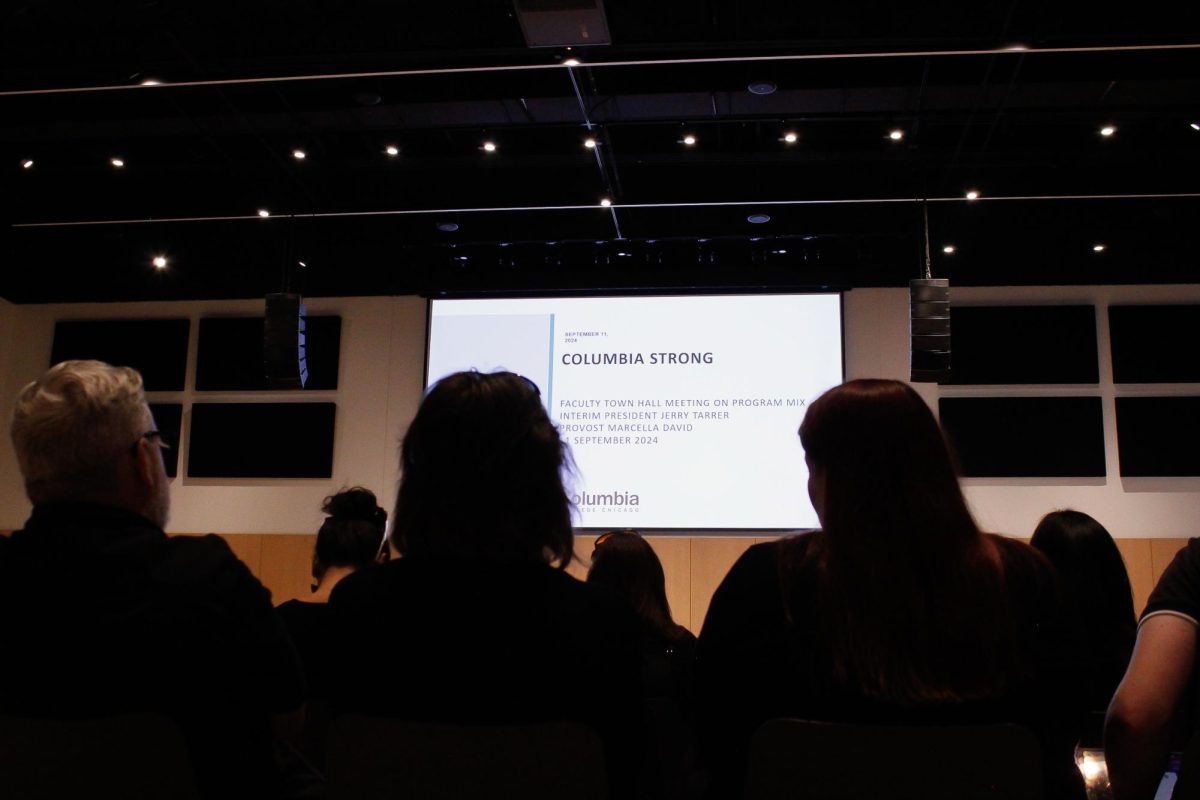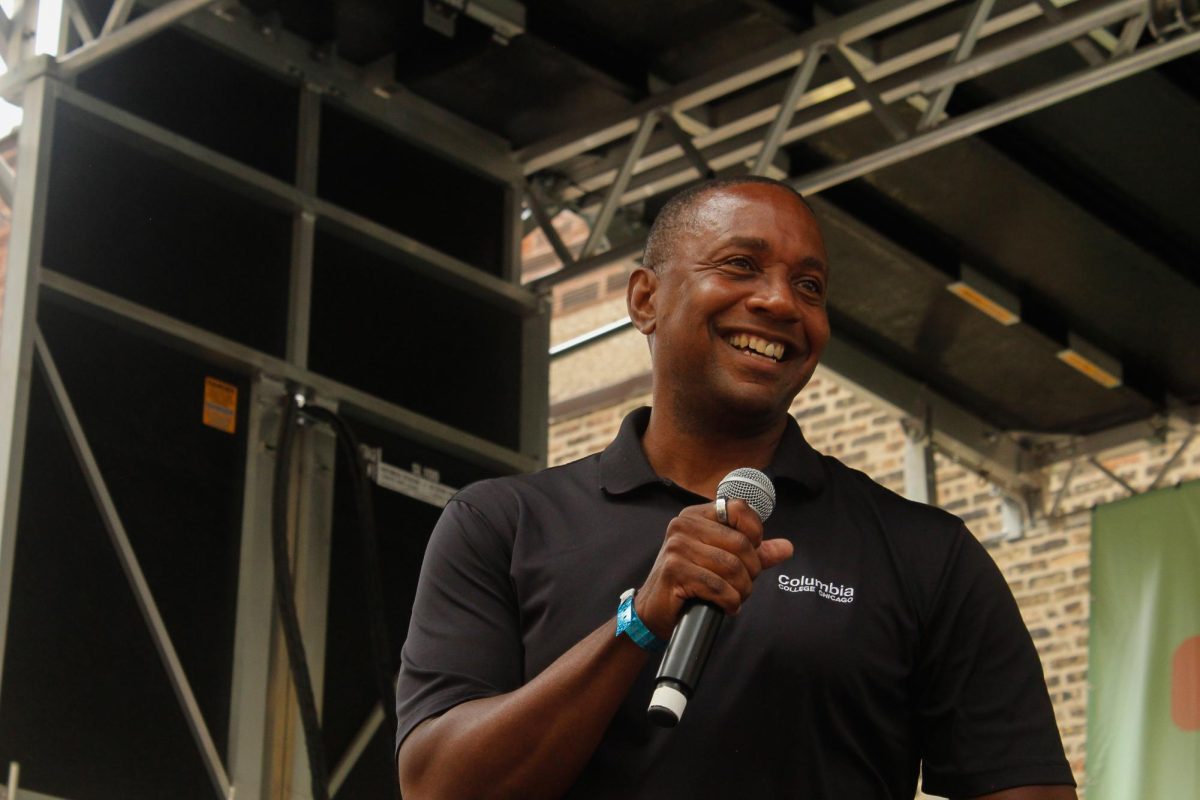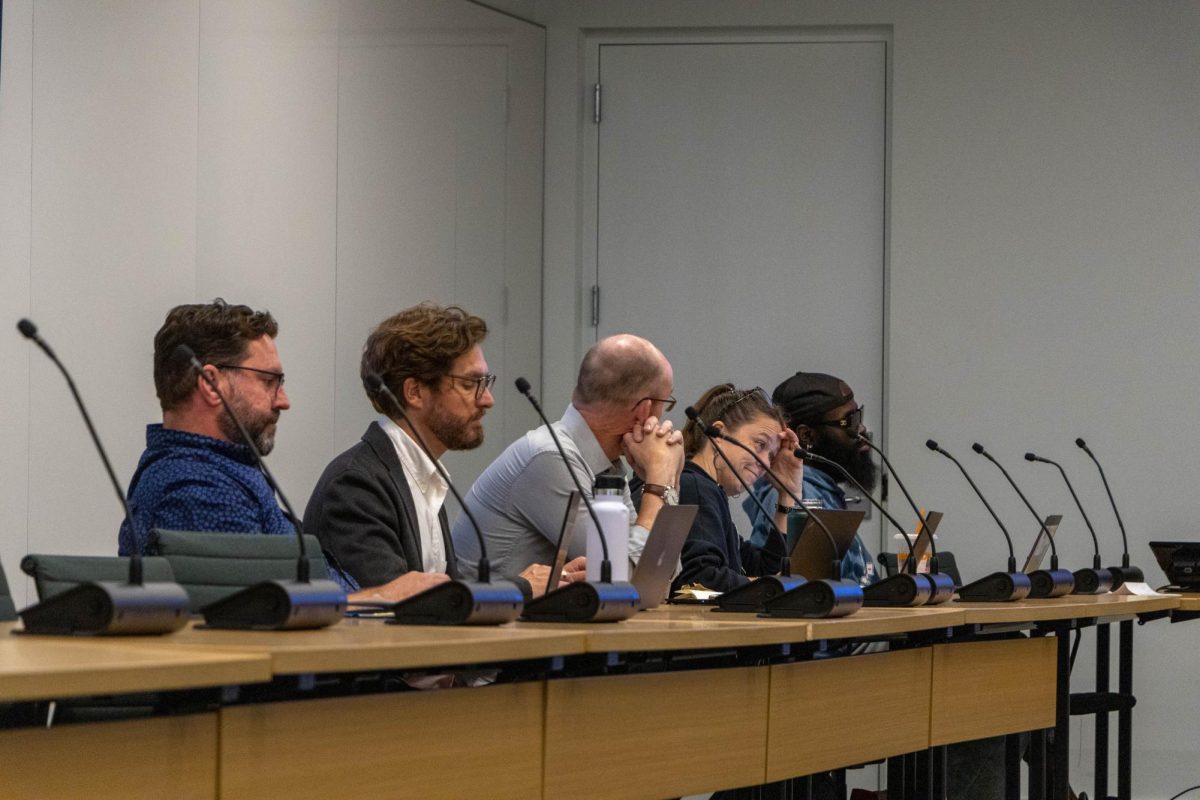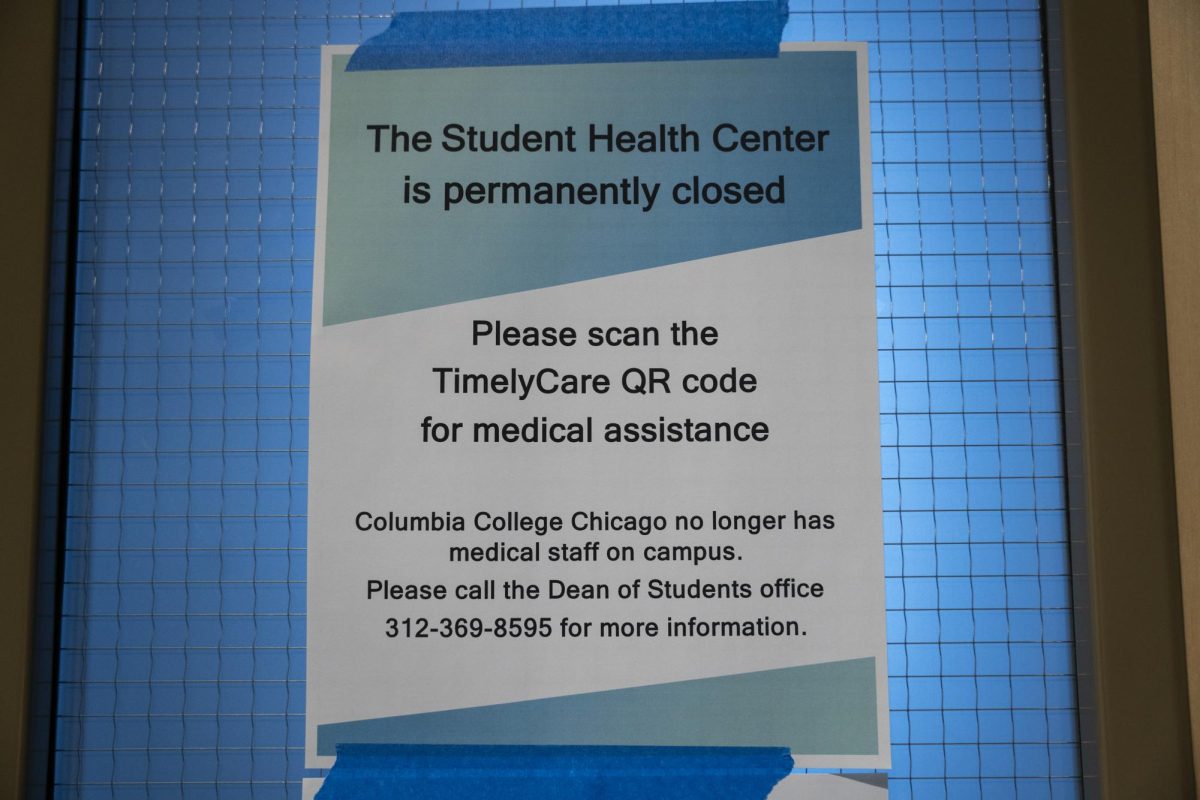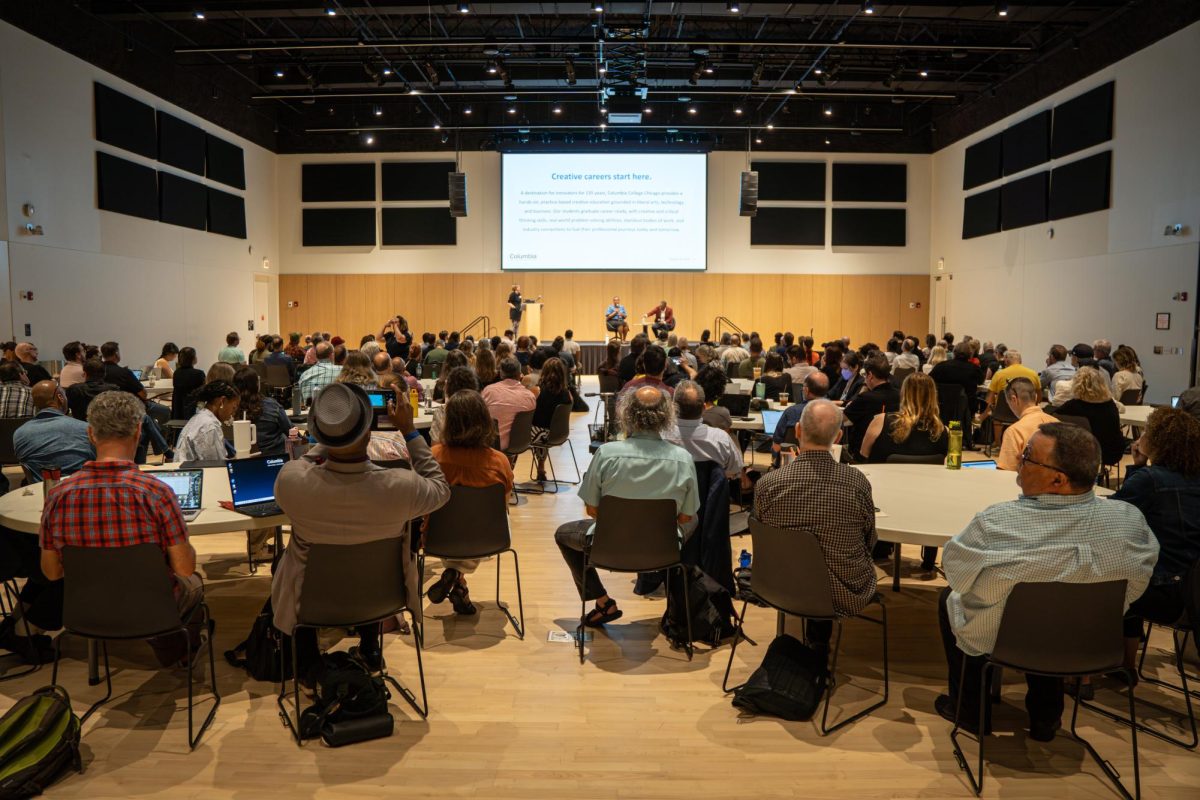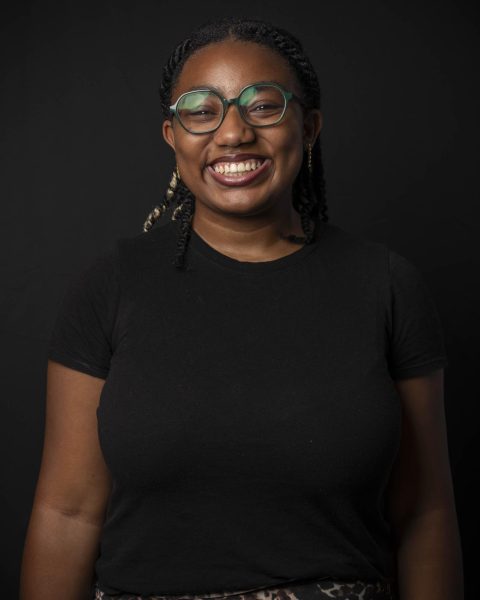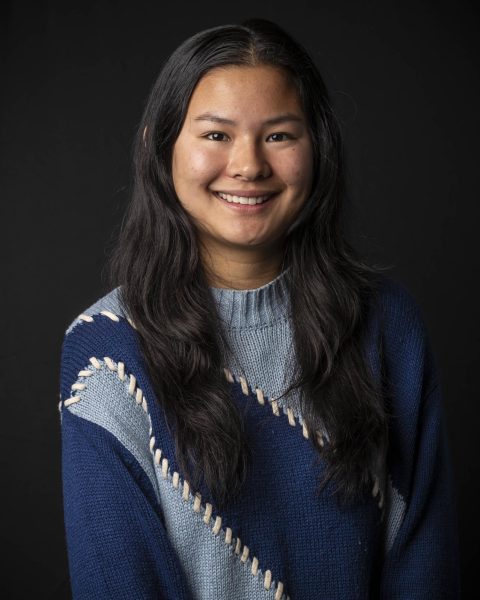Students are worried about how a hiring freeze and growing deficit will impact them, as the college grapples with a financial crisis made worse by the historic strike.
President and CEO Kwang Wu Kim announced this week that the college’s financial deficit has grown to $38 million from about $18.5 to $19 million at the start of last fall. Kim also announced an immediate and “complete” hiring freeze and said the college needs to identify $19 million in cuts, or the equivalent of 125 positions, as the Chronicle previously reported.
Kim said the increase in the deficit is due to $13 million in one-time costs from a seven-week strike by part-time faculty in the fall.
Even though many students had pressed for a tuition freeze during the strike, Kim said tuition will need to increase to keep the college afloat.
“It’s ridiculous,” said junior photography major Johnny Witkus. He blamed the union and administration for not resolving the strike sooner. “They didn’t come to an agreement quicker, so it made the deficit bigger,” he said.
There was a 5% increase between 2022-23 and 2023-24 school years.
In the conversation with faculty on Tuesday, Kim said the college did not raise tuition right after the Covid pandemic, even though it needed to raise money. He said the college’s financial problems started to worsen then.
“The Covid years were brutal to this college,” he said. The college had to spend more money than planned. Large number of students left the college, and “as a gesture of support,” we did not raise tuition for two years.”
Katilyn Mahan, a first-year double major in journalism and creative writing, said it feels like students are “left in the dust.”
“It’s all going to come back down to the students, and having to raise our tuition,” she said. So even with a hiring freeze, that’s not enough, and so then they have to increase tuition, and that’s really stressful for everybody.”
EllaRose Winston, a senior communication major, said she was disappointed and blamed the administration.
“Students are just suffering all of these losses due to administration shortcomings,” she said. “We’re suffering this loss of not being able to have any new professors, new talent, a new lens brought to our school, which is to no fault of our own.”
Junior arts management major Camryn Mather works on campus at 623 S. Michigan. She said that she is worried about the potential impact that the hiring freeze may have on spaces across campus, particularly if there is not enough staff to keep them open.
“It’s concerning for all of us because we love this school and we want it to continue, but we’re scared of what that might mean,” she said. “It’s all concerning because all of those things affect our quality of education.”
Sophomore cinema and television major Zion Rogers said she is worried that the hiring freeze will impact the college’s ability to hire a “more inclusive staff” that can provide the “culturally responsive” education that she’s looking for.
“I think that when we stop hiring new teachers [and] new staff, it limits the level of creativity and ideas that are being fostered in the institution,” Rogers said.
Ahead of the spring semester, the college hired 14 assistant or associate professors of instruction and one practitioner in residence in the theatre department.
As part of the freeze, the college is putting a halt on the search for a new dean of the School of Media Arts, a move that junior journalism major Zahra Sandhu said will “hurt a lot of students.”
Maika Shibata, a senior double major in film and graphic design, said the college needs to address issues of class size to account for a lack of faculty members.
“If they’re not going to be hiring any faculty to take on the surplus amount of students that need to take classes, they need to increase the number of students that are allowed in a class,” she said.
First year computer animation student Mae Mendoza is worried that current faculty will depart due to the changes.
“If professors do start to leave Columbia due to all the chaos that’s been going on, I’m worried about my quality of education overall,” she said. “It raises a massive problem in the future, and as someone who is a part of Columbia’s future I am concerned.”
Additional reporting from Christalyn Barker, Riley Hannon, Avery Heeringa, Roa Khalil, Kate Julianne Larroder, Sofia Oyarzun, Em Ramirez, Uriel Reyes, Lilly Sundsbak, and Maya Swan-Sullivan.


